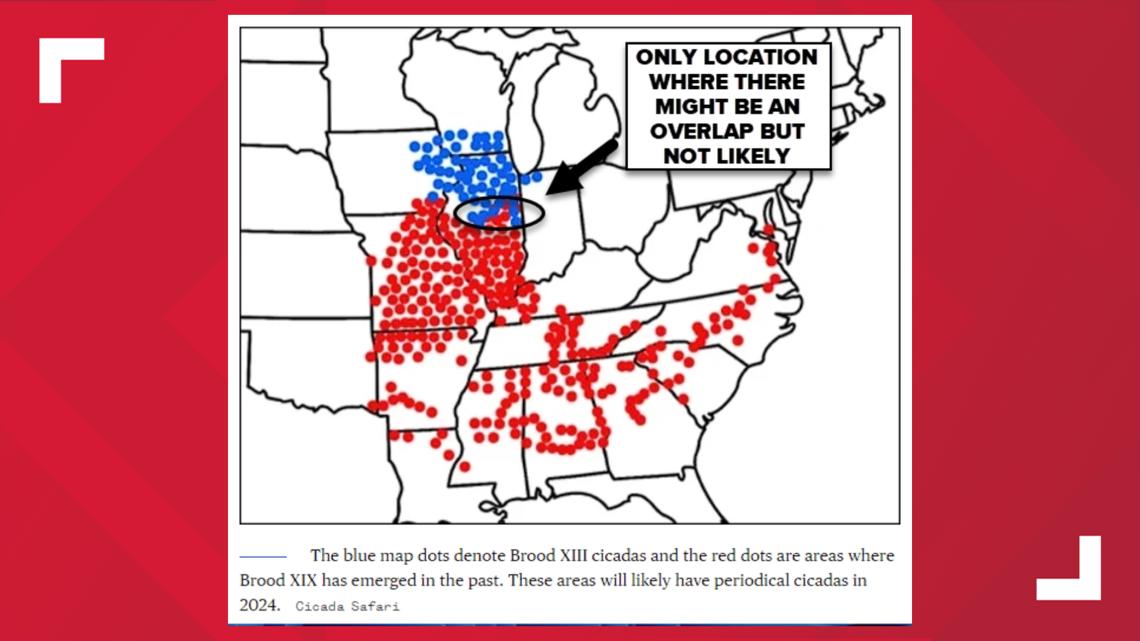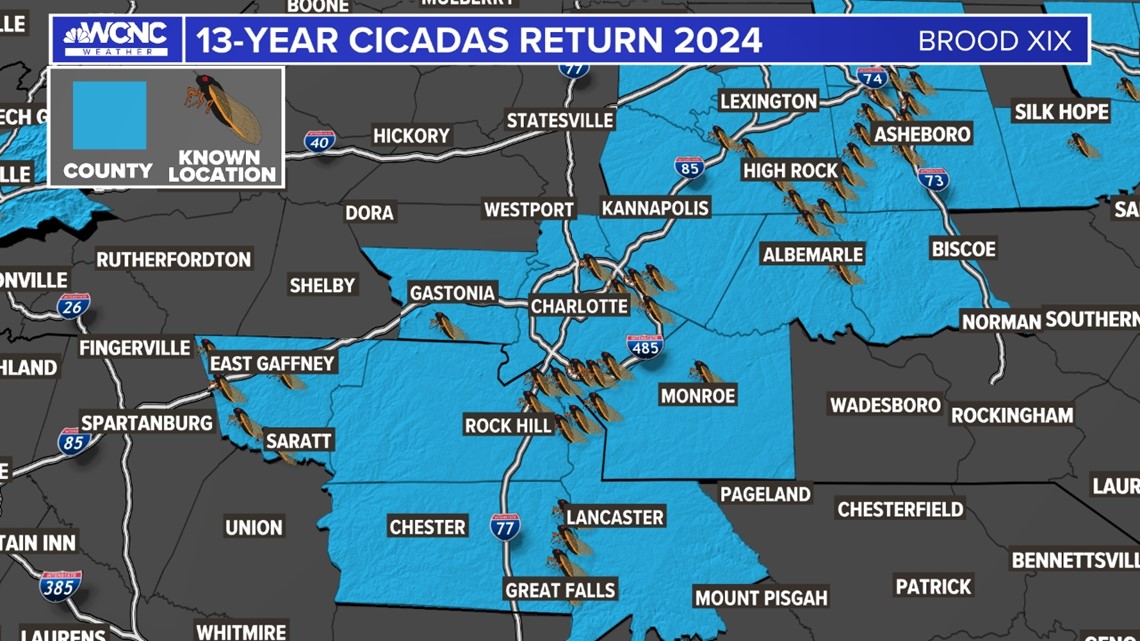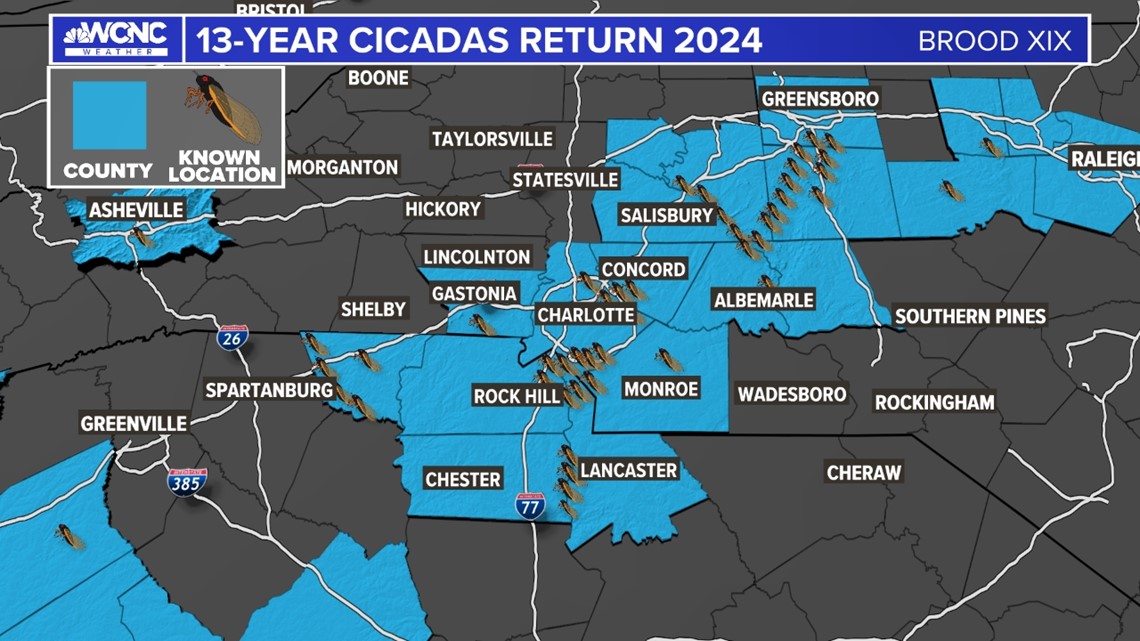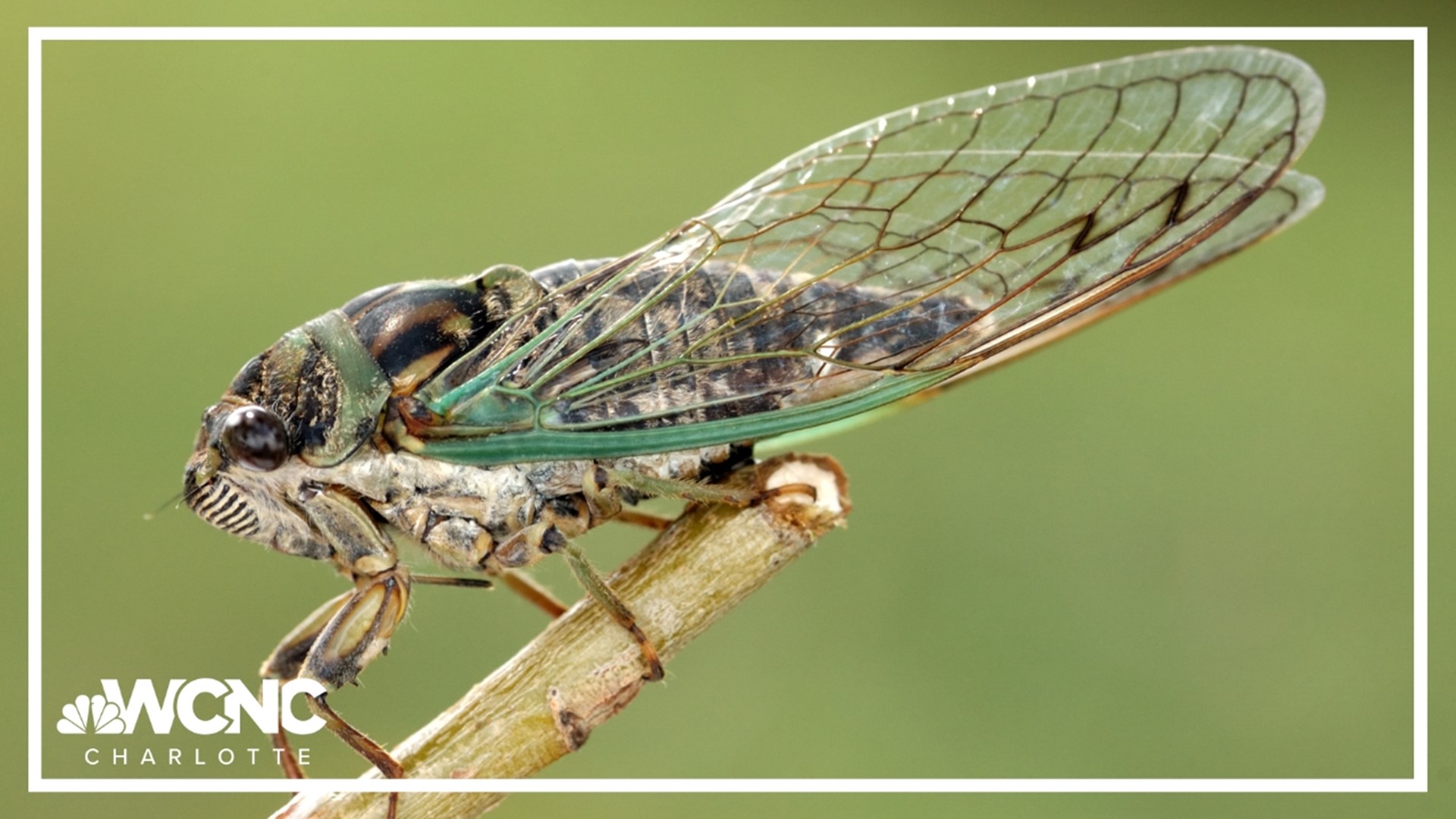CHARLOTTE, N.C. — Cicadas are the sound of late summer, but some types of cicadas come every year and in relatively small numbers. These are often referred to as the green cicadas and start to emerge in late summer. That's why they are called the dog days cicadas.
Periodical Cicadas
These cicadas only return on the cycle of 17 or 13 years, and they return in huge numbers, usually in the millions. This year, we have a specific type that returns to the Carolinas called Brood XIX or Brood 19. They are 13-year returning or periodical cicadas. This is often referred to as the great Southern Brood because so many areas of the South see them. These are not locusts, which are grasshoppers.
Brood XIX 13 year Cicadas
Once the soil temps reach 64° at 8" deep, we will start to see them emerge. This brood comes back every 13 years locally. There has been a lot of misinformation, hype, and even false information about the cicadas this year. We only have one returning Brood here, and it will only be in very isolated locations where they were 13 years ago—the red dots on the map.


What is unique about this year is that in the Midwest, a 17-year returning brood XIII(13) will return as well, which are the blue dots on the map. So yes, two peratre broods are returning in 2024, but not in the same locations or at the exact same times. Soil temps warm from south to north, just like the weather, so they emerge south to north.
So don't expect some crazy amount of cicadas, just the average amount like in 2011. Honestly, there may be fewer due to land development since they last returned here in 2011. I remember the best spots to hear them and see them were Pineville, Ballantyne, and Ft Mill. The new greenway around Carolina Place Mall will be very loud and full of them this year. They also will leave millions of shells of their bodies when they molt.
For the latest weather alerts, download the WCNC Charlotte mobile app and enable push notifications.
Know locations from 2011




So what will they be doing?
The simplest reduction of their life cycle is:
- They hatch from an egg
- They burrow underground, where they will drink from plant roots for most of their lives
- They leave the underground and become adults
- The males make sounds that attract females
- Males & females court & mate
- Females lay fertilized eggs in the branches of plants, and the cycle continues
- They die
Are they harmful or dangerous?
Cicadas are not harmful to humans, pets, or property. They don't bite or sting, and their mouthparts are more like a straws than teeth. The worst that most cicadas will do to a person is startle them. Some young trees can be overwhelmed if too many feed on them, but they mostly look attached to older, larger trees, which aren't affected as much.
WCNC Charlotte’s Weather IQ YouTube channel gives detailed explainers from the WCNC Charlotte weather meteorologists to help you learn and understand weather, climate and science. Watch previous stories where you can raise your Weather IQ in the YouTube playlist below and subscribe to get updated when new videos are uploaded.


